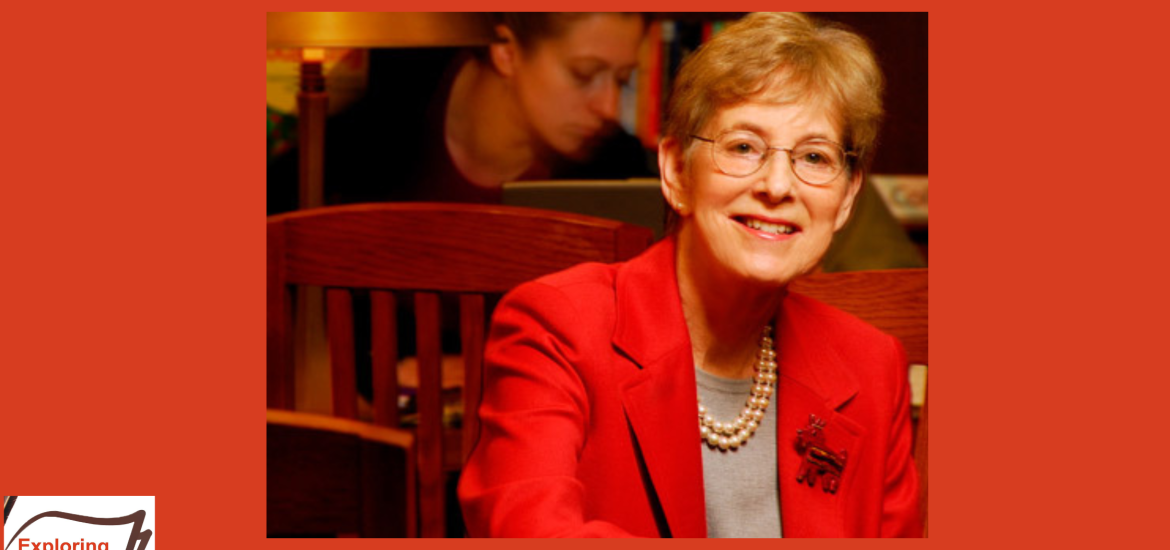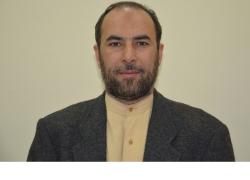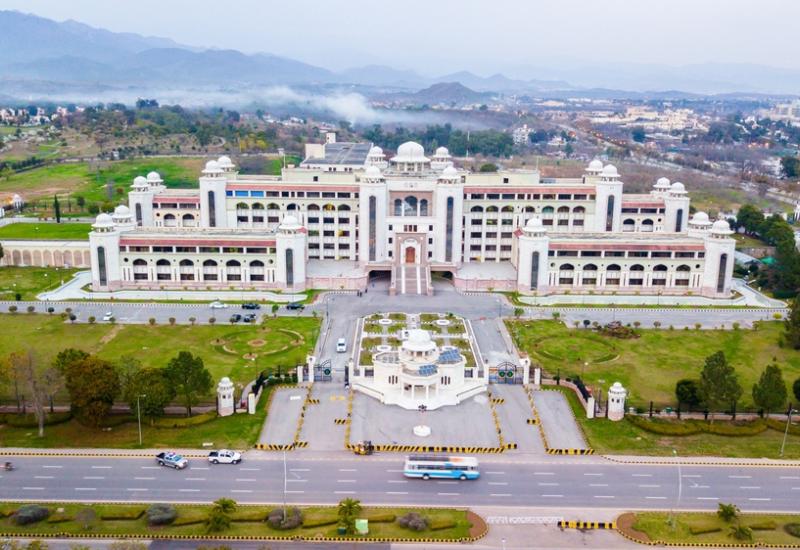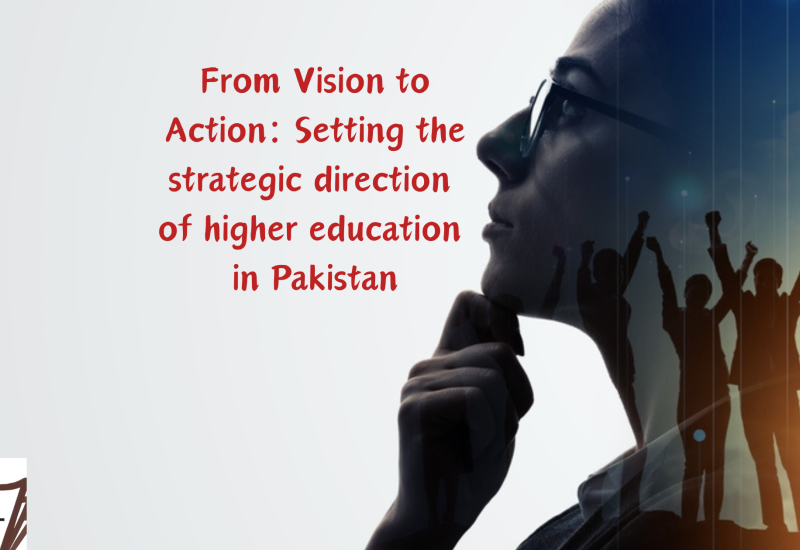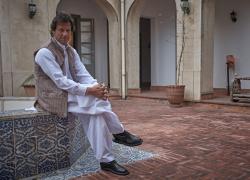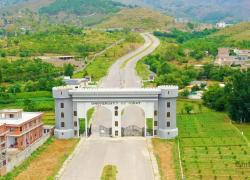Philanthropy in higher education in Pakistan: Learning to donate
The news that Dr. Ruth Gottesman, a longtime professor at the Albert Einstein College of Medicine, has donated $1 billion to the Albert Einstein College of Medicine has taken the social media by storm. It is one of the largest donations ever given to any American school and the largest ever given to a medical school in the United States, making free tuition available to all students going forward. The donation is notable not only for its staggering size, but also because it is going to a medical institution in the poorest area of the New York city.
The 93-year-old widow of a Wall Street financier, David Gottesman, is a former professor at the college, where she studied learning disabilities, developed a screening test and ran literacy programs.
Dr. Gottesman said her donation would enable new doctors to begin their careers without medical school debt, which often exceeds $200,000. She hoped it would broaden the student body to include people who could not otherwise afford to go to medical school. Tuition is more than $59,000 (PKR.16,479,547) a year, and many graduated with crushing medical school debt. While her husband ran an investment firm, First Manhattan, Dr. Gottesman had a long career at Albert Einstein, a well-regarded medical school, starting in 1968, when she took a job as director of psychoeducational services. She has long been on Einstein’s board of trustees and is currently the chair.
Not only would future students be able to embark on their careers without the debt burden, but she wished that her donation would enable a wider pool of aspiring doctors to apply to medical school. This will open the doors up for many other students whose economic status is such that they wouldn’t even think about going to medical school.
At first, Dr. Gottesman was reluctant to attach her name to her donation and even wanted to keep it secret and confidential by saying, “Nobody needs to know,” however, a close associate, Dr. Ozuah insisted that others might find her life inspiring saying, “Here’s somebody who is totally dedicated to the welfare of others and wants no accolades, no recognition.
The donation undoubtedly will have a positive impact on the students. It shall help eliminate their tuition burden, which was a significant source of stress and financial hardship for medical students. This shall lead to the feelings of relief, hope, and gratitude among the students, ultimately contributing to their well-being and potentially their contentment.
History of philanthropy in higher education in the United States.
The US has a rich history and long tradition of individual philanthropy. Over the past generation, a number of billionaires have given hundreds of millions of dollars to better-known medical schools and hospitals in the US. Historically donations to educational institutions in the US can be traced back to the colonial era. Harvard University, founded in 1636, was one of the first institutions to receive significant donations, including contributions from its namesake, John Harvard. In the late 19th and early 20th centuries, philanthropic foundations played a significant role in supporting education. Institutions such as the Carnegie Corporation of New York, the Rockefeller Foundation, and the Ford Foundation provided substantial funding for the establishment of universities, higher education institutions, research centers, and scholarship programs.
Many of the elite universities in the US, including Ivy League institutions such as Harvard, Yale, and Princeton, have benefited from substantial private endowments. These endowments, often built through donations from wealthy alumni, provide long-term financial stability and support for research, scholarships, and campus development.
In the 20th century, as the importance of education for workforce development became evident, many corporations began donating to educational institutions. These donations often supported specific programs, research initiatives, or infrastructure development in the universities and higher education institutions that were aligned with the corporation’s interests. Hence, generous individuals, including alumni, philanthropists, and other supporters, made significant contributions to educational institutions across the US. Those donations included funded scholarships, research projects, professorships, and campus facilities.
For instance, in 2010, Facebook co-founder Mark Zuckerberg pledged $100 million to help improve public education in Newark, New Jersey. Nike co-founder Phil Knight and his wife, Penny, have made several major donations to their alma mater, Stanford University. Their contributions have supported various initiatives, including the construction of campus buildings, athletic facilities, and funding for academic programs. David Koch, a billionaire industrialist and philanthropist, made significant donations to Massachusetts Institute of Technology (MIT) over the years, including a $100 million contribution in 2007 to establish the David H. Koch Institute for Integrative Cancer Research.
In 2018, former New York City Mayor Michael Bloomberg pledged a historic $1.8 billion donation to his alma mater, Johns Hopkins University. This donation was the largest ever made to a higher education institution in the United States at the time and aimed to support financial aid for qualified low- and middle-income students. While not directly to an educational institution, Warren Buffett’s donation of $30 billion worth of Berkshire Hathaway stock to the Bill & Melinda Gates Foundation has had a significant impact on higher education. The Gates Foundation has invested heavily in global health, research and education initiatives, including efforts to improve higher education in the United States.
These were just a few examples of major donations to educational institutes in the US. Many other individuals, foundations, and corporations have also made substantial contributions to support education and research at universities and schools across the country. These donations to the US educational institutes have played a vital role in expanding access to education, fostering research and innovation, and ensuring the financial sustainability of institutions across the country.
History of philanthropy in higher education in the United Kingdom.
Donations to educational institutes in the United Kingdom have a long history dating back centuries. Many of the oldest universities in the UK, including the University of Oxford and the University of Cambridge, were established during the medieval period with the support of donations from wealthy benefactors, religious institutions, and monarchs. These early donations often included land, buildings, and financial endowments to support the universities’ operations.
The collegiate system, which is prevalent in universities like Oxford and Cambridge, has historically relied on donations to fund individual colleges within the larger university framework. Donations from alumni, patrons, and benefactors have been essential for maintaining the infrastructure, supporting faculty salaries, and providing scholarships for students.
Over the centuries, many charitable trusts and endowments have been established in the UK to support education and research. These trusts often originate from the bequests of wealthy individuals who wished to contribute to the advancement of knowledge and learning. Endowments provided a stable source of funding for universities and supported specific programs, scholarships, or research initiatives. The Victorian era saw a significant increase in philanthropic donations to educational institutes in the UK. Industrialists, entrepreneurs, and philanthropists such as Andrew Carnegie, John D. Rockefeller, and Joseph Rowntree made substantial contributions to universities, schools, and libraries, aiming to improve access to education and promote social progress.
In the modern era, many educational institutes in the UK benefit from donations from foundations, charities, and philanthropic organizations. These donations supported a wide range of initiatives, including academic research, student scholarships, infrastructure development, and community outreach programs.
Like in other parts of the world, alumni giving plays a crucial role in supporting higher education in the UK. Alumni donate to their alma maters to express gratitude for their education, support future generations of students, and contribute to the continued success of their universities.
Major donations to educational institutes and universities in the UK have significantly influenced their development and academic excellence. The Rhodes Trust, established through the will of Cecil Rhodes in 1902, provides scholarships known as Rhodes Scholarships to outstanding students from around the world to study at the University of Oxford. The trust has made a substantial contribution to Oxford’s international reputation and educational diversity. Businessman Wafic Saïd donated £20 million to the University of Oxford in 1996 to establish the Saïd Business School. This donation has contributed to the school’s growth and development into one of Europe’s leading business schools.
David Harding, a hedge fund manager and Cambridge alumnus, donated £100 million to the University of Cambridge in 2019. The donation was aimed at supporting postgraduate scholarships and funding for doctoral research.
Imperial College London received a £40 million donation from alumnus Michael Uren in 2014. The donation went toward the construction of the Michael Uren Biomedical Engineering Research Hub, supporting advancements in medical technology and healthcare innovation. Philanthropist
Leonard Blavatnik donated £75 million to the University of Oxford in 2010, the largest single donation to a British university at the time. In 2017, he also donated £25 million to the University of Cambridge. Blavatnik’s contributions have supported various research initiatives and scholarships at both institutions. Entrepreneur Chris Morling donated £4 million to the University of Edinburgh in 2019 to establish the Morling Scholarship Fund. This fund provides scholarships for students from disadvantaged backgrounds to pursue undergraduate degrees at the university.
Businessman and philanthropist John Madejski donated £3 million to the University of Reading in 2009 to establish the John Madejski Centre for Reputation. The center focuses on research and education in reputation management and corporate communication. Anthony Denny, a retired financier, donated £10 million to the University of Cambridge in 2019 to establish the Denny Teaching and Learning Center. The center supports innovative teaching methods and enhances the learning experience for students.
These donations represent just a few examples of the significant contributions made to educational institutes and universities in the UK, highlighting the vital role of philanthropy in supporting higher education and research. Overall, donations to educational institutes in the UK have been integral to their development and success over the centuries, helping to maintain academic excellence, promote innovation, and expand access to education for students from all backgrounds.
History of philanthropy in higher education in Pakistan.
While the tradition of philanthropy in higher education in Pakistan may not be as long-standing or well-documented as in some other countries, there have been notable instances of individuals, organizations, and governments contributing to the advancement of education.
Several charitable foundations and trusts in Pakistan such as Edhi Foundation, and the Aga Khan Foundation have been working to support education and research. These organizations provide financial assistance, scholarships, and grants to educational institutes, students, and researchers. Alumni of educational institutes in Pakistan often contribute to their alma maters through donations, endowments, and fundraising campaigns. These donations support scholarships, academic programs, faculty development, and campus facilities..
Wealthy individuals and philanthropists in Pakistan have made significant contributions to educational institutes through personal donations, endowments, and charitable trusts. These donations helped in establishing new academic programs, supported faculty positions, funded research centers, and provided financial aid to students from underprivileged backgrounds.
Pakistan’s educational landscape was significantly shaped by philanthropic efforts even before its independence in 1947. Donations from individuals, families, and communities helped establish numerous schools, colleges, and universities across the region. Prominent families and local leaders often contributed land, funds, and resources to support educational initiatives.
Individual philanthropists, including prominent businessmen, entrepreneurs, and professionals, have made substantial donations to educational institutes and universities in Pakistan which may not be captured aptly in the blog post. These donations often supported specific projects or initiatives, such as building construction, faculty development, student scholarships, and research programs which needs to be highlighted by the people concerned in order to inspire others.
Quaid-e-Azam Muhammad Ali Jinnah, the founder of Pakistan in his will (1939) designated Islamia College Peshawar as one of the inheritors of his property. “All my residuary estate including the corpus that may fall after the lapse of life interest or otherwise to be divided into three parts – and I bequeath one part to Aligarh University – one part to Islamia College Peshawar and one part to Sindh Madrassa of Karachi”, the will stated. The total amount, hence, received by Islamia College Peshawar is recorded as Rs. 1,08,11,600 (one crore, eight lakh, eleven thousand and six hundred rupees) which contributed to the college’s development.
A prominent Pakistani businessman and philanthropist, Syed Babar Ali made significant contributions to higher education in Pakistan. Being the single largest donor to Lahore University of Management Sciences (LUMS) over the last 25 years, he played a key role in founding LUMS in 1984 and has continued to support the institution through donations and fundraising efforts. His contributions have helped LUMS become one of the leading universities in Pakistan. A Pakistani businessman, Saifuddin Soofi, along with his sons, have donated for the establishment of the School of Social Sciences and Humanities at LUMS.
The Gurmani Foundation that endowed the Gurmani Centre for Language and Literature at LUMS has recently donated a sum of PKR 1 billion to LUMS as endowment, the largest private single donation ever granted to any higher educational institution in Pakistan, to assist talented students with financial assistance and other scholarly activities.
A Pakistani businessman and philanthropist, Ahsan Habib Khan donated generously to establish the Institute of Business Administration (IBA) Karachi’s main campus. Established by Prince Karim Aga Khan IV, the Aga Khan University is a private research university with main campus in Karachi. Although primarily known for his humanitarian work through the Edhi Foundation, Abdul Sattar Edhi also supported educational initiatives in Pakistan. While specific details of his donations to higher education institutes may not be widely documented, his philanthropic efforts undoubtedly had a positive impact on educational development in the country.
Renowned transplant surgeon Dr. Adeeb Rizvi established the Sindh Institute of Urology and Transplantation (SIUT) in Karachi, which provides free or highly subsidized healthcare services to millions of patients annually. While SIUT primarily focuses on healthcare, Dr. Rizvi’s contributions have indirectly supported medical education and research in Pakistan.
Recently, the US-Pakistani businessman tycoon Tanweer Ahmed has donated $9 million to the National University of Science & Technology (NUST) to help students from poor backgrounds to gain access to quality education through scholarships. This will benefit nearly 200 students who would be able to get scholarships every year.
These individuals have made significant contributions to educational development in Pakistan, although specific details regarding the amounts donated to higher education institutes may vary. Their philanthropic endeavors have helped create opportunities for students, fostered academic excellence, and supported the growth of higher education in the country that needs to be highlighted to motivate others.
Despite these contributions, challenges such as inadequate funding, infrastructure deficiencies, and socio-economic disparities continue to affect Pakistan’s education sector. However, donations and philanthropic efforts remain essential in addressing these challenges and improving educational outcomes for future generations in Pakistan.
Since, the government allocated budgets alone are unlikely to be sufficient in the foreseeable future to achieve the required growth at public universities which cater to a large majority of students, it is high time that the universities take a leading role and establish and expand as rapidly as possible endowment funds that can be utilized to meet the goal. Colleges and universities must become familiar with and practice the art and science of fundraising to ensure a sustainable future for the increasing number of young people seeking education.
Large donations to universities are a very special gift from generous donors that unfortunately happen on rare occasions in this part of the world, the philanthropists and particularly the expatriates have to come forward to play their long due role as happens in the more developed parts of the world. Besides, universities must plan fundraising campaigns that encourage small donations from the community and everyone on a continuous basis. Even a small amount of money, if donated by a large number of people and on an ongoing basis can significantly increase the principal funds of universities.
Important Note/Disclaimer:
This blog post is intended to bring to the limelight the names of those donors and philanthropist who made tremendous contribution to the higher education sector in Pakistan. The names of those donors and philanthropists who made significant contribution to the higher education sector in Pakistan and are left out from mentioning here is not intentional in any case. It is share lack of my knowledge. Exploring Academia shall be highly indebted to those individuals who point out such names worth mentioning. They will be subsequently added to this post with due acknowledgment of the individuals who highlighted them.

